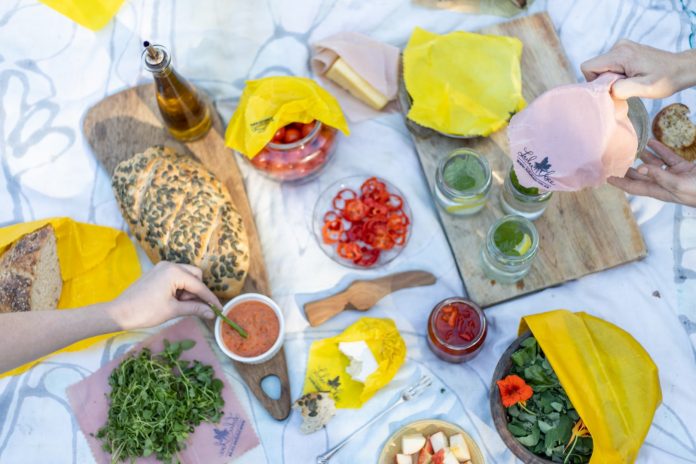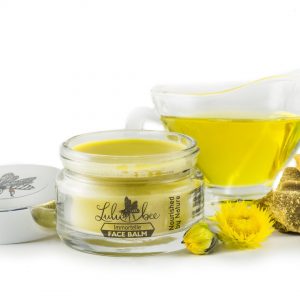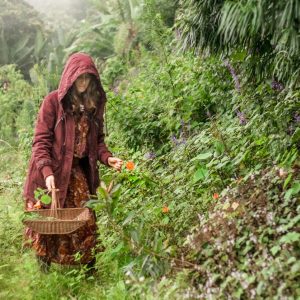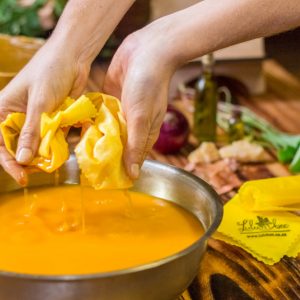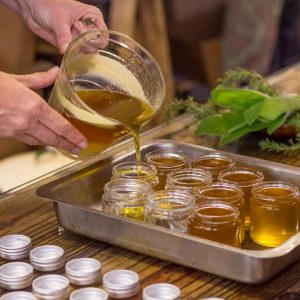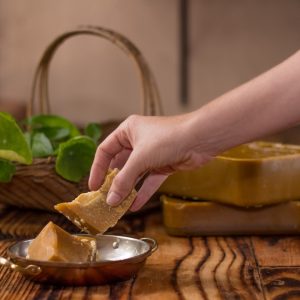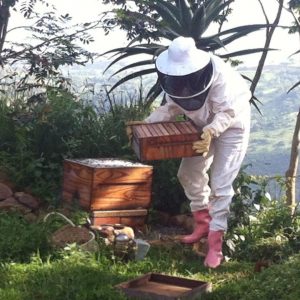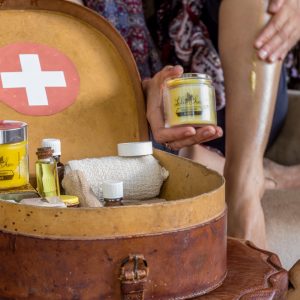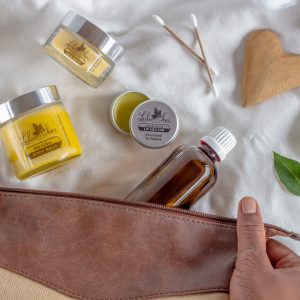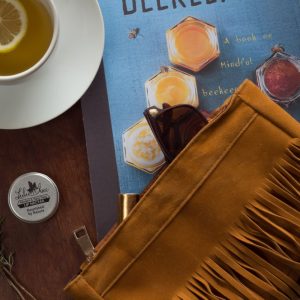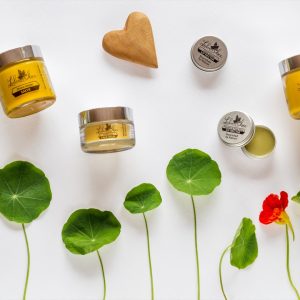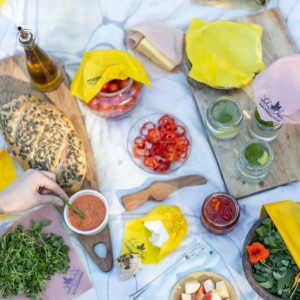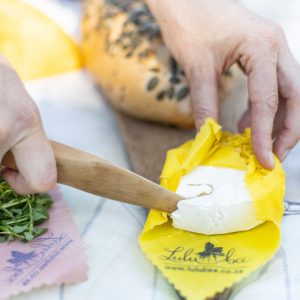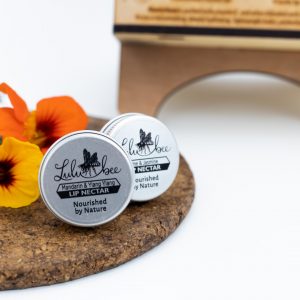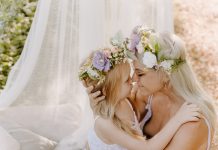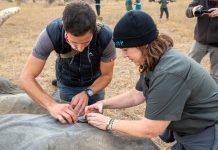Most days you’ll find Lulu Edy-Roderick scanning her natural environment for seeds, leaves and roots. On other days, she’ll be in her apiary, dancing to the hum of thousands of bees.
A beekeeping workshop, many moons ago, started Lulu Edy-Roderick on a journey to creating a wildly-crafted artisan brand that embraces the use of fresh plant allies, combined with beeswax, to make nourishing balms and healing salves.
For Lulu, now a seasoned beekeeper and wild plant forager, the thrill of turning to plants, insects and wildlife for their teachings and natural healing properties was enough to thrust her and her like-minded husband, Keith, into a humble world of living alternatively. Together, they’ve dedicated the past decade to growing their love for all things wildly crafted.

And she’s taken her love of bees, plants and re-wilding natural areas and infused them to create Lulubee.
‘I grew up in Greyville, a built up urban concrete area, but the complex we lived in, Kirkwood Gardens, had – and still has – the most magnificent Ficus tree. I spent hours playing beneath its canopy with my friends and, thinking back, all my childhood games gravitated around this tree. Fast forwarding to my adult life, I had the opportunity to work at The Durban Botanic Gardens for 18 years, where, surrounded by like-minded folks who were specialists within their fields, my love for nature and all things wild deepened.’
In 2011, the Durban Botanic Gardens hosted a free hands-on beekeeping course and after the weekend-long course Lulu says she arrived home feeling invigorated with a new sense of inspiration. ‘I remember talking Keith’s ear off and sharing with him my experience. I knew then that I wanted to work with bees. I began to research and experiment with a collection of specifically chosen plants, discovering each one’s benefits and attributes.’

‘We are creative, industrious folk, constantly repurposing bits and pieces and giving discarded things new life by turning them into something handy to use in our daily lives. In the same breath, reducing our footprint on this earth is just as important to us, so including recyclable packaging and sustainable alternatives as part of our business was a decision that came easily as it complimented our own conscious living.’
When it comes to the bees, Lulu and Keith are the custodians of the honey bee (Apis scutellata) and currently have a small apiary of five hives. They tend to the bees as and when needed.
‘Seasonally, it is important to perform maintenance on a hive – tasks such as inspections to monitor the health of the bees, maintenance of the brood frames and harvesting honey. As a beekeeper, I lean towards holistic bee centred practices, placing the needs of the bees first. I also turn to many mentor beekeepers for their guidance and insight in my growth as a beekeeper.
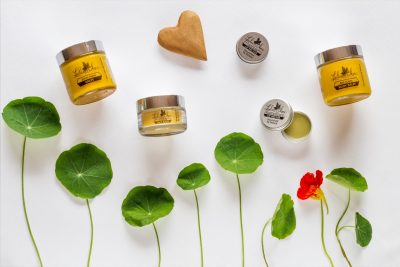
On giving advice to people who want to keep bees, Lulu suggests joining a beekeeping club, such as the KZN Bee-farmers Association, who have monthly outdoor meetings focused on hands-on practical knowledge sharing.
‘If keeping bees is not for you, then why not plant indigenous flowers in your garden to encourage their presence. Pot plants are great in a small space or plant on your verge if you have one. These will supply a constant source of food for bees.’
When it comes to honey, Lulu encourages environmentally conscious consumers to get to know their local beekeepers.

‘Support sustainable bee farmers who embrace conscious beekeeping practises. You can tell a lot about someone by meeting them and hearing their story, and from there you can make an informed decision about the integrity of the honey or the product they sell. It all goes hand in hand. As for me, my focus is on growing a sustainable business, one that enriches my life through the journey of learning and sharing traditional knowledge of how whole plant medicine can support one’s wellbeing. Ultimately, what we are doing is harnessing nature’s healing ability and offering products that are naturally wholesome and true to their origins. What could be better?’
The Lulubee range includes everthing from the inexpensive little On-the-Go Travel Tin and luscious Mandarin & Ylang Ylang Lip Nectar to Bee-licious Body Balm, Immortelle Face Balm or the more indulgent Botanique Massage Bar. Prices from around R25 to R360. You’ll find all details on lulubee.co.za
Where to buy the best local honey, directly from the bee-keeper? Here are Lulu’s recommendations
Janice van Eck, Qalabusha Bee Farming, 082 332 8786, Durban North
Melvyn Dawson, Dawson Bees, 082 452 4536, Westville
Gavin Dawson, Dawson Bees, 082 490 0253, Gillitts
Dylan Stephen, Bee Happy, 064 528 7124, Hillcrest/Assagay
Kim McCall, Hawthorne Hill Farming, 082 707 0761, Claridge/Pietermaritzburg

